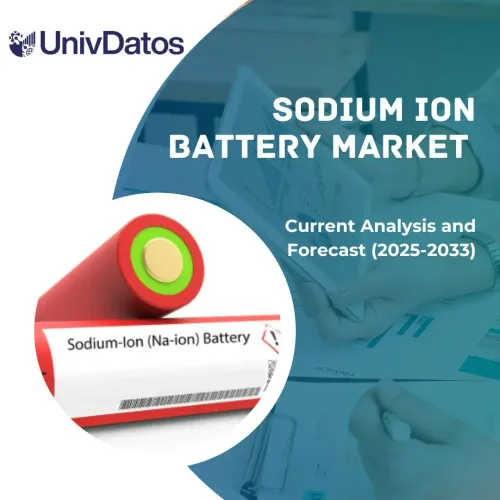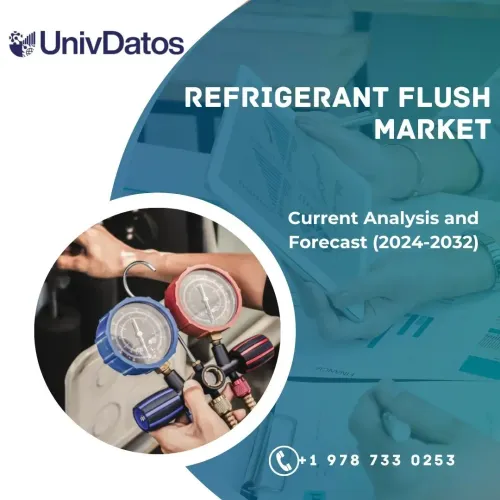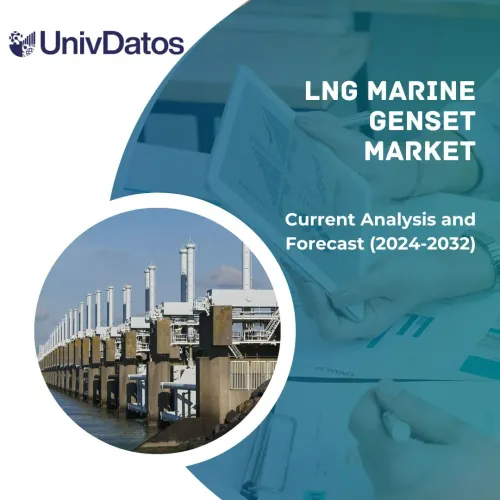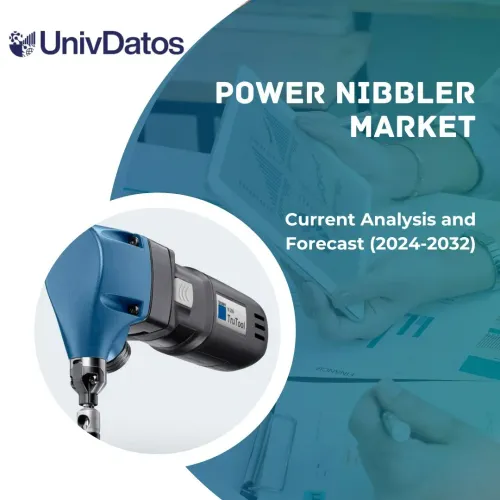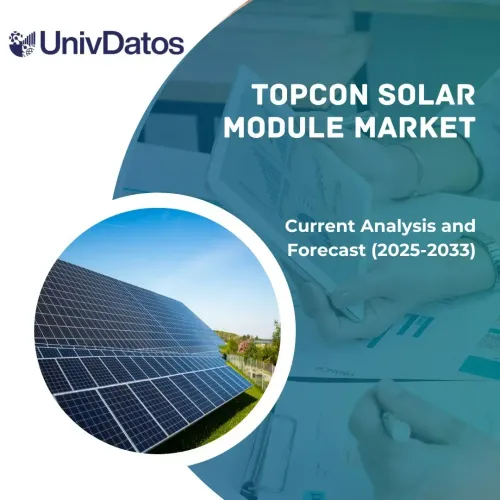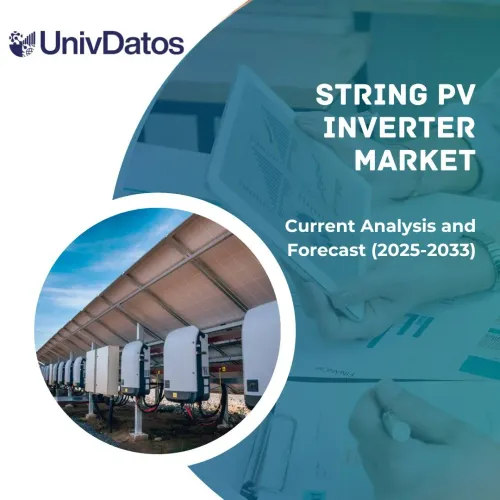- Strona główna
- O nas
- Branża
- Usługi
- Czytanie
- Kontakt
Rynek Rurowania i Cementowania Studni: Bieżąca Analiza i Prognoza (2021-2027)
Nacisk na Typ (Usługi Sprzętu Rurowego (Rura Osłonowa, Sprzęt i Usługi Wspomagające Rurowanie) i Usługi Sprzętu Cementacyjnego (Głowica Cementacyjna, Zatyczka Czyszcząca, Narzędzie Stopniowe, Inne), Typ Operacji (Cementowanie Pierwotne, Cementowanie Naprawcze i Inne), Typ Studni (Studnia Pozioma, Studnia Pionowa), Zastosowanie (Morskie i Lądowe) oraz Region i Kraj
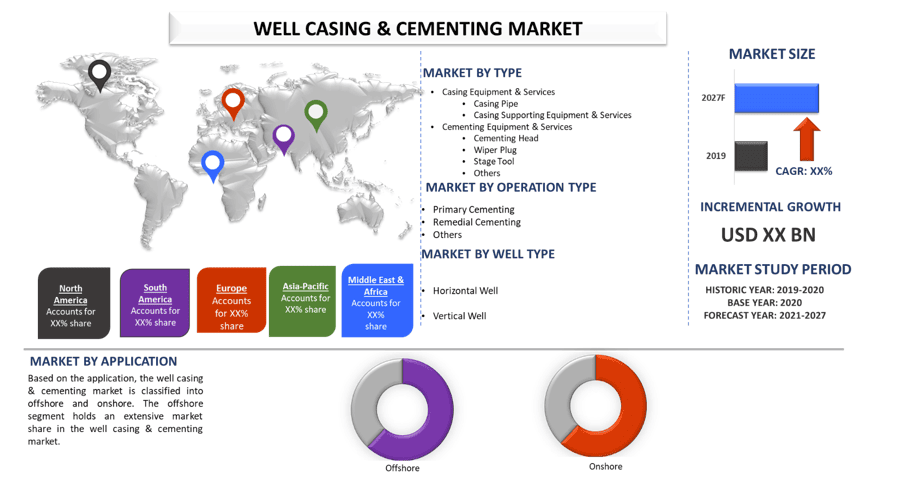
Oczekuje się, że globalny rynek rurowania i cementowania studni będzie rósł w tempie CAGR wynoszącym około 5% w okresie prognozy (2021-2027).Rurowanie studni to wykładzina, taka jak pusta rura stalowa, która jest instalowana w odwiertach naftowych po wierceniu w celu podparcia studni, natomiast cementowanie studni to proces używania cementu pomiędzy przestrzenią pierścieniową otworu wiertniczego a rurą osłonową w celu podparcia obciążeń pionowych i promieniowych działających na rurę osłonową. Istnieją różne rodzaje rur osłonowych, takie jak rura osłonowa przewodu, rura osłonowa pośrednia, rura osłonowa powierzchniowa, rura osłonowa produkcyjna, liner i rura osłonowa przedłużająca liner.
Ponadto postęp technologiczny w przeprowadzaniu procesów wiercenia studni w połączeniu z ciągłym rozwojem łupków i nowymi odkryciami na polach naftowych to jedne z głównych czynników zwiększających wzrost rynku. Dodatkowo, rosnące inwestycje w przemyśle naftowym i gazowym oraz rosnące zainteresowanie rządu zapewnieniem federalnego finansowania badań i rozwoju współfinansowanych w zaawansowanych technologiach odzyskiwania niekonwencjonalnej ropy i gazu to czynniki, które mają na celu przyspieszenie wzrostu branży.
Pandemia koronawirusa została ogłoszona przez Światową Organizację Zdrowia (WHO) jako globalny stan zagrożenia zdrowia publicznego. Rządy w wielu krajach wprowadziły blokady i zakazy podróżowania, zamknięcie przemysłu wytwórczego, działalność handlową, co poważnie zakłóciło łańcuch dostaw. Ponadto zapotrzebowanie na energię spadło, a operacje poszukiwania i przetwarzania ropy i gazu zostały wstrzymane, co negatywnie wpłynęło na światową gospodarkę. Zatem ograniczyło to inwestycje w operacje lądowe, co ostatecznie obniżyło wielkość rynku rurowania i cementowania studni.
Zastosowanie rurowania i cementowania studni 2020

Halliburton, Schlumberger, BHGE, Weatherford, Tenaris, Vallourec, TMK Group, Trican, Nabors Industries, Frank’s International. Kilka fuzji i przejęć wraz z partnerstwami zostało podjętych przez tych graczy, aby ułatwić klientom dostęp do zaawansowanych technologicznie i innowacyjnych produktów/technologii.
Informacje Prezentowane w Raporcie
„Wśród typu sprzętu i usług, segment usług sprzętu rurowego ma największy udział”
W oparciu o typ, rynek rurowania i cementowania studni jest podzielony na usługi sprzętu rurowego i usługi sprzętu cementacyjnego. Usługi sprzętu rurowego zaspokajały znaczne zapotrzebowanie na rynku rurowania i cementowania studni. Ponieważ rura osłonowa odgrywa kluczową rolę w podpieraniu surowej studni, proces ten jest przeprowadzany na różnych etapach, co czyni go kosztowną procedurą. Zatem kategoria sprzętu i usług rurowych stanowiła większy udział w rynku.
Ponadto rura osłonowa pomaga w utrzymaniu stabilności, zapobieganiu łączeniu się piasków wodonośnych, izolowaniu wody od formacji produkcyjnych oraz kontrolowaniu ciśnień w studni podczas wiercenia, produkcji i operacji remontowych podczas poszukiwań i wydobycia ropy i gazu.
„Wśród typu operacji, segment cementowania pierwotnego ma największy udział”
W oparciu o typ operacji, rynek rurowania i cementowania studni jest podzielony na cementowanie pierwotne, cementowanie naprawcze i inne. Segment cementowania pierwotnego ma znaczny udział w rynku rurowania i cementowania studni. Ponieważ cementowanie pierwotne jest krytycznym procesem w procesie budowy studni. Gwałtowny wzrost poszukiwań i przetwarzania ropy i gazu w różnych gospodarkach wschodzących napędza wielkość rynku rurowania i cementowania.
Ponadto działania badawczo-rozwojowe pomagają w dalszym doskonaleniu efektywności odzysku z nowo powstających niekonwencjonalnych złóż ropy i gazu, co z kolei odgrywa krytyczną rolę w maksymalizacji produkcji energii w różnych regionach. Dlatego przyspieszenie wzrostu kategorii na globalnym rynku rurowania i cementowania studni.
„Wśród zastosowań, segment morski ma największy udział”
W oparciu o zastosowanie, rynek rurowania i cementowania studni jest podzielony na morski i lądowy. Segment morski ma duży udział w rynku rurowania i cementowania studni. Wzrost tego segmentu jest napędzany przede wszystkim przez redukcję kosztów i cyfryzację projektów offshore naftowych i gazowych. Ostatecznie stworzyłoby to nowe możliwości dla rynku rurowania i cementowania studni w okresie prognozy. Ponadto oczekuje się, że nowe odkrycia na polach naftowych na morzu zwiększą operacje wiercenia. Taki rozwój na morzu napędza rynek rurowania i cementowania studni.
Ponadto ostatnie fale redukcji kosztów i przełomowych technologii umożliwiły wielu firmom zajmującym się poszukiwaniem i wydobyciem ropy i gazu rozszerzenie swojego portfolio zrównoważonych projektów głębokowodnych. W styczniu 2020 r. Eni rozpoczęło produkcję na polu głębokowodnym Agogo-1 i wygrało prawa do poszukiwań bloku 28 w basenie Namibe, podczas gdy Total, aktywny w Angoli od ponad 60 lat, otrzymał blok 2.
„Afryka Bliskiego Wschodu reprezentuje jeden z największych udziałów w globalnym rynku rurowania i cementowania studni”
Dla lepszego zrozumienia dynamiki globalnego rynku rurowania i cementowania studni przeprowadzono szczegółową analizę dla różnych regionów, w tym Azji i Pacyfiku, Ameryki Północnej, Ameryki Południowej, Europy, Bliskiego Wschodu i Afryki. Bliski Wschód i Afryka stanowiły znaczący udział w rynku rurowania i cementowania studni. Jest to głównie dominujące ze względu na gwałtowny wzrost inwestycji w działalność poszukiwawczą ropy i gazu na morzu w połączeniu z rosnącym zużyciem energii w regionie, co akcentuje wielkość rynku rurowania i cementowania studni. Ponadto rynek jest napędzany przez wzrost w niekonwencjonalnym przemyśle naftowym i gazowym w Arabii Saudyjskiej, a popyt z pól lądowych i morskich stwarza możliwości dla perspektyw branżowych.
Na przykład: w maju 2021 r. Middle East Energy rozpoczyna się od sektora energii odnawialnej i czystej, który zapewnia platformę do zbadania wzmacniającego się impetu globalnej transformacji w kierunku energii odnawialnej. Aby sprostać ulepszonym transmisjom i działaniom dystrybucyjnym, wzrośnie działalność wiertnicza i poszukiwawcza, co zwiększy wielkość rynku rurowania i cementowania.
Powody, dla których warto kupić ten raport:
- Badanie obejmuje analizę wielkości rynku i prognoz, zatwierdzoną przez autentycznych kluczowych ekspertów branżowych.
- Raport przedstawia szybki przegląd ogólnej wydajności branży na pierwszy rzut oka.
- Raport obejmuje dogłębną analizę wybitnych partnerów branżowych, ze szczególnym uwzględnieniem kluczowych danych finansowych przedsiębiorstw, portfeli produktów, strategii ekspansji i ostatnich osiągnięć.
- Szczegółowe badanie czynników napędowych, ograniczeń, kluczowych trendów i możliwości występujących w branży.
- Badanie kompleksowo obejmuje rynek w różnych segmentach.
- Dogłębna analiza na poziomie regionalnym branży.
Opcje Dostosowywania:
Globalny rynek rurowania i cementowania studni może być dodatkowo dostosowany do wymagań lub jakiegokolwiek innego segmentu rynku. Poza tym, UMI rozumie, że możesz mieć własne potrzeby biznesowe, dlatego skontaktuj się z nami, aby uzyskać raport, który w pełni odpowiada Twoim wymaganiom.
Spis treści
Analiza historycznego rynku, oszacowanie obecnego rynku i prognozowanie przyszłego rynku globalnego rynku rurowania i cementowania studni to trzy główne kroki podjęte w celu stworzenia i analizy adopcji rurowania i cementowania studni w głównych regionach na całym świecie. Przeprowadzono wyczerpujące badania wtórne w celu zebrania historycznych danych rynkowych i oszacowania obecnej wielkości rynku. Po drugie, aby zweryfikować te spostrzeżenia, wzięto pod uwagę liczne ustalenia i założenia. Co więcej, przeprowadzono również wyczerpujące wywiady pierwotne z ekspertami branżowymi w całym łańcuchu wartości globalnego rynku rurowania i cementowania studni. Po założeniu i walidacji danych rynkowych poprzez wywiady pierwotne, zastosowaliśmy podejście „od góry do dołu/od dołu do góry” w celu prognozowania pełnej wielkości rynku. Następnie zastosowano metody podziału rynku i triangulacji danych w celu oszacowania i analizy wielkości rynku segmentów i podsegmentów, do których należy branża. Szczegółowa metodologia wyjaśniona jest poniżej:
Zasięgnij Więcej Informacji o Metodologii Badań
Zasięgnij Więcej Informacji o Metodologii Badań
Analiza Historycznej Wielkości Rynku
Krok 1: Dogłębne badanie źródeł wtórnych:
Szczegółowe badanie wtórne zostało przeprowadzone w celu uzyskania historycznej wielkości rynku rurowania i cementowania studni za pośrednictwem wewnętrznych źródeł firmy, takich jakraporty roczne i sprawozdania finansowe, prezentacje wyników, komunikaty prasowe itp.,i źródeł zewnętrznych, w tymczasopisma, wiadomości i artykuły, publikacje rządowe, publikacje konkurencji, raporty sektorowe, bazy danych stron trzecich i inne wiarygodne publikacje.
Krok 2: Segmentacja rynku:
Po uzyskaniu historycznej wielkości rynku rurowania i cementowania studni przeprowadziliśmy szczegółową analizę wtórną w celu zebrania historycznych informacji o rynku i udziału dla różnych segmentów i podsegmentów dla głównych regionów. Główne segmenty zawarte w raporcie jako typ, typ operacji, typ studni i zastosowanie. Dalsze analizy na poziomie krajowym przeprowadzono w celu oceny ogólnego przyjęcia modeli testowych w danym regionie.
Krok 3: Analiza czynników:
Po uzyskaniu historycznej wielkości rynku różnych segmentów i podsegmentów przeprowadziliśmy szczegółoweanaliza czynnikowaaby oszacować obecny rozmiar rynku dla rynku rur osłonowych i cementowania. Ponadto przeprowadziliśmy analizę czynnikową przy użyciu zmiennych zależnych i niezależnych, takich jak niski koszt i cyfryzacja morskich projektów naftowo-gazowych. Przeprowadzono szczegółową analizę scenariuszy popytu i podaży, uwzględniając najważniejsze partnerstwa, fuzje i przejęcia, ekspansję biznesu oraz wprowadzenia produktów na rynek rur osłonowych i cementowania na całym świecie.
Szacowanie i prognoza obecnego rozmiaru rynku
Szacowanie bieżącego rozmiaru rynku:Na podstawie praktycznych spostrzeżeń z powyższych 3 kroków, doszliśmy do obecnego rozmiaru rynku, kluczowych graczy na globalnym rynku rur osłonowych i cementowania oraz udziałów w rynku poszczególnych segmentów. Wszystkie wymagane udziały procentowe, podziały i podziały rynku zostały określone przy użyciu wspomnianego powyżej podejścia wtórnego i zweryfikowane poprzez wywiady pierwotne.
Szacowanie i prognozowanie:Dla szacowania i prognozowania rynku, przypisano wagi do różnych czynników, w tym czynników napędzających i trendów, ograniczeń i możliwości dostępnych dla interesariuszy. Po przeanalizowaniu tych czynników, zastosowano odpowiednie techniki prognozowania, tj. podejście top-down/bottom-up, aby dojść do prognozy rynkowej na około 2027 rok dla różnych segmentów i podsegmentów na głównych rynkach globalnie. Metodologia badawcza przyjęta do oszacowania wielkości rynku obejmuje:
- Rozmiar rynku branży pod względem wartości (USD) i wskaźnik adopcji rynku rur osłonowych i cementowania na głównych rynkach krajowych
- Wszystkie udziały procentowe, podziały i podziały segmentów i podsegmentów rynku
- Kluczowi gracze na globalnym rynku rur osłonowych i cementowania pod względem oferowanej kategorii. Również strategie wzrostu przyjęte przez tych graczy, aby konkurować na szybko rozwijającym się rynku
Walidacja wielkości i udziału w rynku
Badania pierwotne:Przeprowadzono szczegółowe wywiady z kluczowymi liderami opinii (KOL), w tym z kadrą kierowniczą najwyższego szczebla (CXO/VP, szef sprzedaży, szef marketingu, szef operacyjny i szef regionalny, szef krajowy itp.) we wszystkich głównych regionach. Wyniki badań pierwotnych zostały następnie podsumowane i przeprowadzono analizę statystyczną w celu udowodnienia postawionej hipotezy. Dane z badań pierwotnych zostały skonsolidowane z wynikami wtórnymi, przekształcając w ten sposób informacje w praktyczne wnioski.
Podział uczestników pierwotnych w różnych regionach
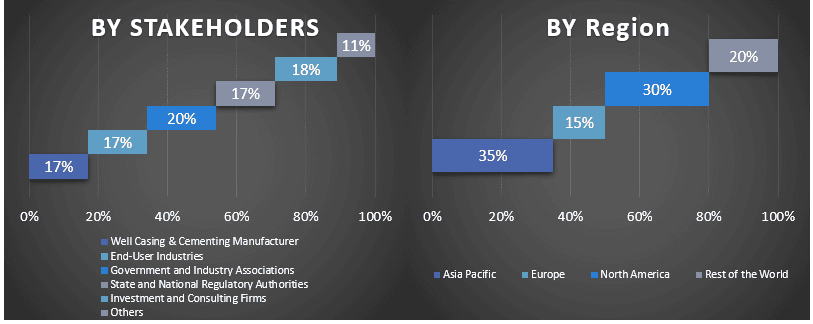
Inżynieria rynku
Zastosowano technikę triangulacji danych, aby zakończyć ogólną estymację rynku i uzyskać precyzyjne liczby statystyczne każdego segmentu i podsegmentu globalnego rynku rur osłonowych i cementowania. Dane podzielono na kilka segmentów i podsegmentów po przestudiowaniu różnych parametrów i trendów w obszarach typu, typu operacji, typu odwiertu i zastosowania na globalnym rynku rur osłonowych i cementowania.
Główny cel badania globalnego rynku rur osłonowych i cementowania
Bieżące i przyszłe trendy rynkowe globalnego rynku rur osłonowych i cementowania zostały wskazane w badaniu. Inwestorzy mogą uzyskać strategiczne spostrzeżenia, aby oprzeć swoje decyzje inwestycyjne na analizie jakościowej i ilościowej przeprowadzonej w badaniu. Obecne i przyszłe trendy rynkowe zostały określone atrakcyjnością rynku na poziomie regionalnym, zapewniając platformę dla uczestnika przemysłowego do wykorzystania niewykorzystanego rynku, aby skorzystać jako pierwszy gracz. Inne cele ilościowe badań obejmują:
- Analiza obecnego i prognozowanego rozmiaru rynku rur osłonowych i cementowania pod względem wartości (USD). Ponadto analiza obecnego i prognozowanego rozmiaru rynku różnych segmentów i podsegmentów
- Segmenty w badaniu obejmują obszary typu, typu operacji, typu odwiertu i zastosowania.
- Definicja i analiza ram regulacyjnych dla branży rur osłonowych i cementowania.
- Analiza łańcucha wartości związanego z obecnością różnych pośredników, wraz z analizą zachowań klientów i konkurencji w branży.
- Analiza obecnego i prognozowanego rozmiaru rynku rur osłonowych i cementowania dla głównego regionu.
- Główne regiony objęte badaniem obejmują Azję i Pacyfik, Amerykę Południową, Europę, Amerykę Północną oraz Bliski Wschód i Afrykę.
- Profile firm na rynku rur osłonowych i cementowania oraz strategie wzrostu przyjęte przez graczy rynkowych, aby utrzymać się na szybko rozwijającym się rynku
Dogłębna analiza regionalna branży
Powiązane Raporty
Klienci, którzy kupili ten przedmiot, kupili również

